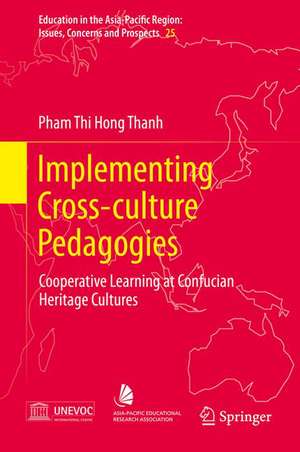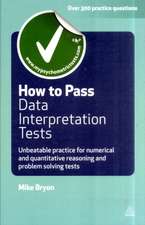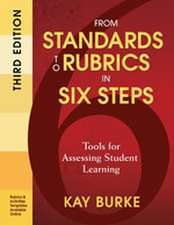Implementing Cross-Culture Pedagogies: Cooperative Learning at Confucian Heritage Cultures: Education in the Asia-Pacific Region: Issues, Concerns and Prospects, cartea 25
Autor Pham Thi Hong Thanhen Limba Engleză Hardback – 11 dec 2013
The volume provides an applied theoretical framework and culturally appropriate and practical instructions that could assist Confucian heritage culture educators and teachers to address various factors at multiple levels in order to optimize success in importing cooperative learning to their classrooms. Overall, it provides strategies to assist Confucian heritage culture teachers to change their teaching practices, redesign lessons plans, design assessment methods, and organize learning activities in a manner that can influence Confucian heritage culture students to shift from employing teacher-centered learning approaches to cooperative learning.
| Toate formatele și edițiile | Preț | Express |
|---|---|---|
| Paperback (1) | 555.53 lei 38-44 zile | |
| Springer Nature Singapore – 18 sep 2016 | 555.53 lei 38-44 zile | |
| Hardback (1) | 566.20 lei 38-44 zile | |
| Springer Nature Singapore – 11 dec 2013 | 566.20 lei 38-44 zile |
Din seria Education in the Asia-Pacific Region: Issues, Concerns and Prospects
- 15%
 Preț: 646.62 lei
Preț: 646.62 lei -
 Preț: 386.99 lei
Preț: 386.99 lei - 18%
 Preț: 730.02 lei
Preț: 730.02 lei -
 Preț: 390.84 lei
Preț: 390.84 lei - 15%
 Preț: 587.53 lei
Preț: 587.53 lei -
 Preț: 389.88 lei
Preț: 389.88 lei - 15%
 Preț: 638.43 lei
Preț: 638.43 lei - 15%
 Preț: 635.80 lei
Preț: 635.80 lei - 15%
 Preț: 644.30 lei
Preț: 644.30 lei - 18%
 Preț: 1117.99 lei
Preț: 1117.99 lei - 15%
 Preț: 638.11 lei
Preț: 638.11 lei - 15%
 Preț: 648.89 lei
Preț: 648.89 lei - 24%
 Preț: 729.91 lei
Preț: 729.91 lei - 20%
 Preț: 551.88 lei
Preț: 551.88 lei - 24%
 Preț: 676.79 lei
Preț: 676.79 lei - 20%
 Preț: 553.79 lei
Preț: 553.79 lei - 24%
 Preț: 797.39 lei
Preț: 797.39 lei - 20%
 Preț: 551.57 lei
Preț: 551.57 lei - 15%
 Preț: 644.30 lei
Preț: 644.30 lei - 20%
 Preț: 557.76 lei
Preț: 557.76 lei - 20%
 Preț: 558.63 lei
Preț: 558.63 lei - 20%
 Preț: 552.45 lei
Preț: 552.45 lei - 20%
 Preț: 565.09 lei
Preț: 565.09 lei -
 Preț: 370.19 lei
Preț: 370.19 lei -
 Preț: 382.82 lei
Preț: 382.82 lei -
 Preț: 383.21 lei
Preț: 383.21 lei -
 Preț: 374.76 lei
Preț: 374.76 lei - 20%
 Preț: 566.76 lei
Preț: 566.76 lei - 15%
 Preț: 644.49 lei
Preț: 644.49 lei
Preț: 566.20 lei
Preț vechi: 707.75 lei
-20% Nou
Puncte Express: 849
Preț estimativ în valută:
108.35€ • 117.66$ • 91.02£
108.35€ • 117.66$ • 91.02£
Carte tipărită la comandă
Livrare economică 18-24 aprilie
Preluare comenzi: 021 569.72.76
Specificații
ISBN-13: 9789814451901
ISBN-10: 9814451908
Pagini: 200
Ilustrații: XIV, 221 p. 8 illus.
Dimensiuni: 155 x 235 x 23 mm
Greutate: 0.51 kg
Ediția:2014
Editura: Springer Nature Singapore
Colecția Springer
Seria Education in the Asia-Pacific Region: Issues, Concerns and Prospects
Locul publicării:Singapore, Singapore
ISBN-10: 9814451908
Pagini: 200
Ilustrații: XIV, 221 p. 8 illus.
Dimensiuni: 155 x 235 x 23 mm
Greutate: 0.51 kg
Ediția:2014
Editura: Springer Nature Singapore
Colecția Springer
Seria Education in the Asia-Pacific Region: Issues, Concerns and Prospects
Locul publicării:Singapore, Singapore
Public țintă
ResearchCuprins
Chapter 1) Introduction and Research Overview.- Chapter 2) Cooperative Learning in Comparison with the Teacher-Centredness.- Chapter 3) Cooperative Learning in CHC Countries.- Chapter 4) An Applied Theoretical Framework to Implement Cooperative Learning in CHC Countries.- Chapter 5) Teaching Practices at CHC Education Institutions: A Hidden Challenge and Techniques to Enhance Cooperative Learning.- Chapter 6) Assessment at CHC Education Institutions: Problems and Strategies to Enhance Cooperative Learning .- Chapter 7) Learning Culture of CHC Students: Its Support and Challenge to Cooperative Learning.- Chapter 8) Structural Constraints at CHC Education Institutions: Barriers Hindering Cooperative Learning and Strategies to Overcome.- Chapter 9) Conclusion: Reflection and Integration.
Textul de pe ultima copertă
During the last two decades Confucian heritage culture countries have widely promoted teaching and learning reforms to advance their educational systems. To skip the painfully long research stage, Confucian heritage culture educators have borrowed Western philosophies and practices with the assumption that what has been done successfully in the West will produce similar outcomes in the East. The wide importation of cooperative learning practices to Confucian heritage culture classrooms recently is an example. However, cooperative learning has been documented in many studies not to work effectively in Confucian heritage culture classrooms. The reason is that the educators often impose this instructional method on the students without a careful consideration of its appropriateness in the socio-cultural context of Confucian heritage culture countries. This procedure is not effective and professional because learning does not stand alone. Rather, it is shaped and influenced by other factors including teaching methods, learning tasks, assessment demands, workload and the learning culture of students in the local context. For cooperative learning to work effectively in Confucian heritage culture classrooms, reformers need to consider the importation of this approach in line with a careful examination of all supports and constraints that affect those factors that are associated with learning.
The volume provides an applied theoretical framework and culturally appropriate and practical instructions that could assist Confucian heritage culture educators and teachers to address various factors at multiple levels in order to optimize success in importing cooperative learning to their classrooms. Overall, it provides strategies to assist Confucian heritage culture teachers to change their teaching practices, redesign lessons plans, design assessment methods, and organize learning activities in a manner that can influence Confucian heritage culture studentsto shift from employing teacher-centered learning approaches to cooperative learning.
The volume provides an applied theoretical framework and culturally appropriate and practical instructions that could assist Confucian heritage culture educators and teachers to address various factors at multiple levels in order to optimize success in importing cooperative learning to their classrooms. Overall, it provides strategies to assist Confucian heritage culture teachers to change their teaching practices, redesign lessons plans, design assessment methods, and organize learning activities in a manner that can influence Confucian heritage culture studentsto shift from employing teacher-centered learning approaches to cooperative learning.
Caracteristici
Discusses cooperative learning including underpinning perspectives, definitions and popular cooperative learning models Discusses how and why CHC nations have been trying to replace teacher-centered instruction to student-centered Discusses comparative cultural theories as frameworks to clarify differences in teaching and learning between the West and East Proposes culturally appropriate strategies to assist CHC teachers to reduce lecturing and adopt cooperative learning activities










